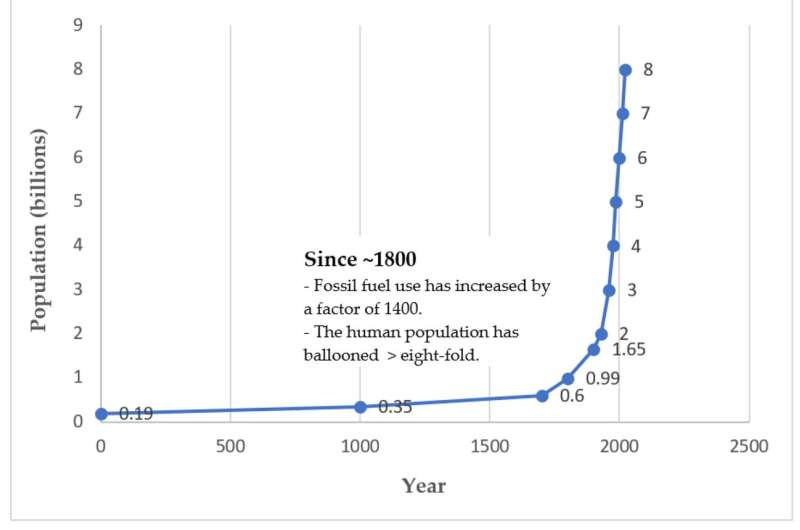August 22, 2023 report
This article has been reviewed according to Science X's editorial process and policies. Editors have highlighted the following attributes while ensuring the content's credibility:
fact-checked
trusted source
proofread
Population ecologist warns that humanity is on the verge of massive population correction

Population ecologist William Rees, with the University of British Columbia's School of Community and Regional Planning, is reminding denizens of Earth that the planet can only support so many people. In his paper published in the journal World, he points out that many models have been developed over the years that show that only a certain number of animals (such as rats) can live in a given environment—they all show that at some point, a population correction occurs.
Back in 1947, ethologist John B. Calhoun, conducted some experiments involving rats in density experiments in outdoor pens—he gave each colony everything they needed to survive, except additional space—there were no predators. Without fail, the rats reproduced until they could not survive in the limited space they were given—population corrections occurred—in some cases, none of the rats survived.
Subsequent experiments with other animals have shown much the same thing, and that has led most in the field to conclude that humans will someday soon find themselves in the same situation. And that is what Rees is pointing out in his paper.
Rees notes that there are already signs of stress due to overpopulation—the planet is growing warmer and critical resources are at risk, such as the availability of fossil fuels as well as food and water. He notes also that many of Earth's cycles are being disrupted, such as weather patterns and the global nutrient cycle.
Taken together, he suggests that planet Earth is headed for a major population correction—perhaps before the end of this century. Such a correction, he notes, would be a drastic reduction in human population. He adds that such a reduction could come about in one or more ways, through war, famine, habitat instability or disease. In Calhoun's rat studies, many of the rodents simply withdrew from society, refusing to work, or even attempt to procreate.
Rees concludes that such a correction is not a foregone conclusion despite the results of experiments. It is possible, he notes, that because we have bigger brains than rats, we may recognize the folly of our ways and make changes that could save us.
If we drastically slow population growth, curb global warming and address some of the other problems we have created, he suggests, the human race could survive until some other event beyond our control kills us off. The first step, he suggests, is recognizing the problems. From there, planning and innovation could result in realistic solutions.
More information: William E. Rees, The Human Ecology of Overshoot: Why a Major 'Population Correction' Is Inevitable, World (2023). DOI: 10.3390/world4030032
© 2023 Science X Network




















